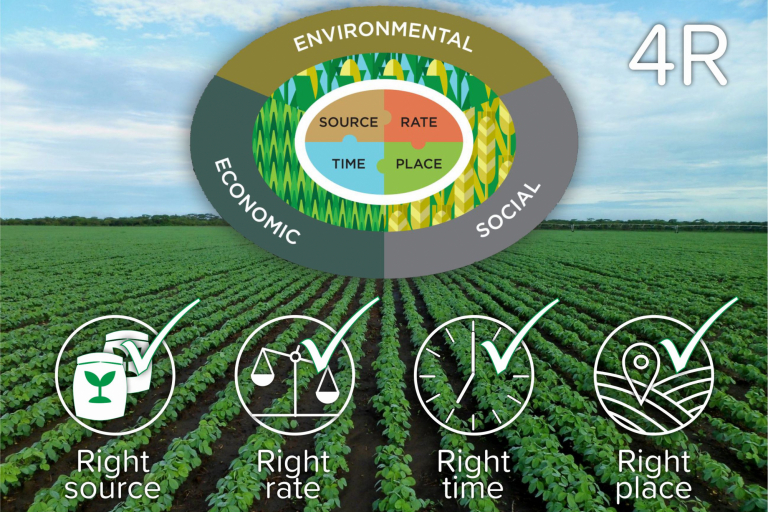Ecomethod
Sie sind hier
ECOMETHOD is a fertilization method that maximizes the benefits of foliar fertilization. The high CEC of the leaves, allows the plant to absorb big quantities of nutrients foliar. Applying these nutrients directly on the leaves, makes it possible to maintain productivity with the same high quality, using a smaller total quantity of fertilizers, up to 90% less.
ECOMETHOD is very efficient and ecological:
Food production is responsible for 19 % to 29 % of the greenhouse gas emissions
Wat is carbon footprint?
The carbon footprint is a specially developed tool to measure and quantify the influence of a human activity on the climate change (global warming). It is measured in tons of emissions of Carbon dioxide equivalents (CO2 eq) which can be caused directly or indirectly by a single product, service or by an organization.
A well-made label on food, on which a reduction of the CO2 emissions is indicated, favours the sales of products with low carbon emissions. The decisions we make every day of what we eat, has a significant impact on climate change. Consumers are becoming a lot more conscient and more motivated to take informed choices of what foods they want to eat.
What is ECOMETHOD ?
Is a method to fertilize your crop with respect for the environment thanks to a reduction of the total amount of fertilizers used to the soil, what is reflected in a reduced CO2 emissions.
BMS Micro-Nutrients developed high quality products, which are very pure and can be applied to the leaves in complete nutritional programmes, maintaining the photosynthesis and production of the plant at a high level, without leaving contaminating residues in soils and groundwater.
What are the objectives of ECOMETHOD ?
- assure the treated crop maintains a high productivity quantity and quality.
- obtain a considerable reduction in the emissions of greenhouse gases (CO2 equivalente)
Why apply ECOMETHOD ?
The new Common Agricultural Policy (CAP 2021/2027) of the EU, will reward companies that adopt more eco-sustainable farming practices, and produce with respect for the environment. This completely complies also with the new regulations imposed by the European Commission for the protection of the environment. (The ODS are the 17 objectives for the sustainable development indicated by the united nations and approved by the Agenda 2030).


